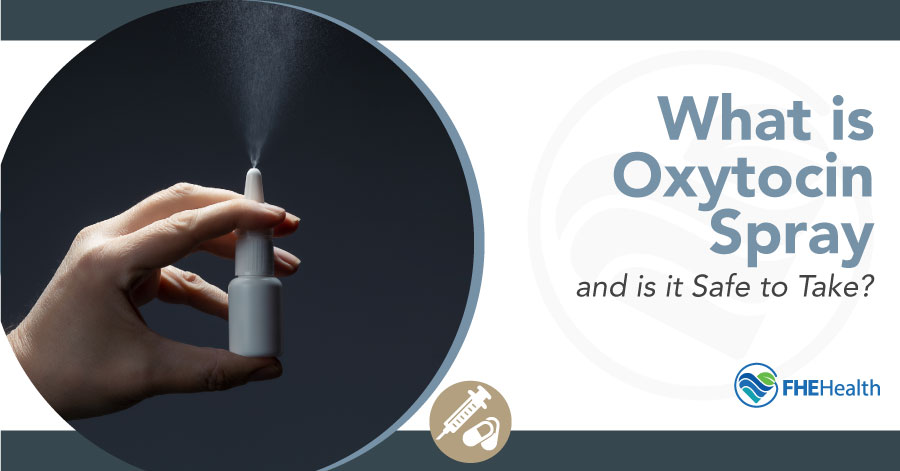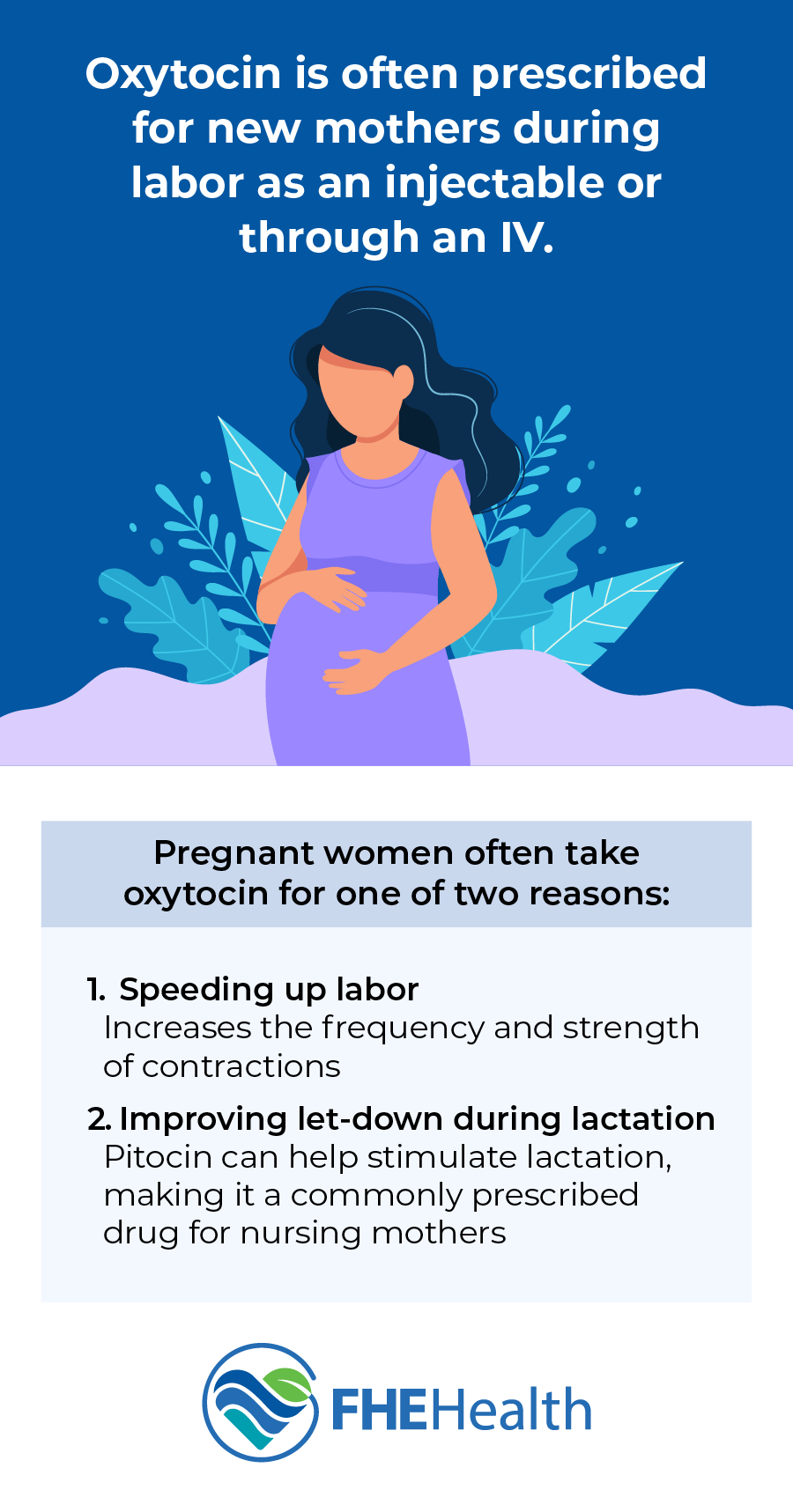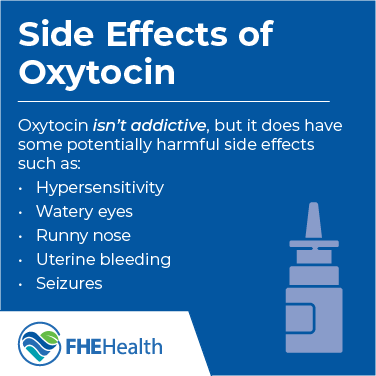
Updated November 11, 2024
Many pregnant women and mothers might be familiar with the synthetic version of oxytocin, Pitocin. It may surprise you to know that this labor and delivery drug is also available in a nasal spray. Oxytocin nasal spray uses range from anxiety treatments to long-term autism support. In clinical trials, oxytocin shows promise as a treatment for obesity and may have other off-label uses. It’s a naturally occurring hormone that’s also available as a supplement.
Taking oxytocin doesn’t create a high, but it may make you feel happier and more socially connected. Men and women release oxytocin during sexual intercourse or cuddling. Taking oxytocin can make you more sensitive to the emotions of those around you. Emotional sensitivity isn’t always a positive experience. In some cases, it could leave you feeling better; in others, you might feel significantly worse. One study found that some subjects with borderline personality disorder became more suspicious of those around them after using the prescribed nasal spray.
Identifying Oxytocin Nasal Spray
 Oxytocin-like sprays are available over the counter at reduced dosages but aren’t FDA-approved. Instead, these lower-dose alternatives hit shelves as supplements or breastfeeding aids. Some marketers even list oxytocin sprays as a way to make more connections. The smell of oxytocin could possibly make you seem more trustworthy to strangers—at least, according to the packaging. While there’s little research to support that use, taking this hormone intranasally may make you more trusting.
Oxytocin-like sprays are available over the counter at reduced dosages but aren’t FDA-approved. Instead, these lower-dose alternatives hit shelves as supplements or breastfeeding aids. Some marketers even list oxytocin sprays as a way to make more connections. The smell of oxytocin could possibly make you seem more trustworthy to strangers—at least, according to the packaging. While there’s little research to support that use, taking this hormone intranasally may make you more trusting.
Oxytocin is often prescribed in hospital settings for new mothers during labor as an injectable or through an IV. Patients take it to intensify contractions, speeding up labor. After delivery, you might take oxytocin to speed up milk let-down so you can feed your hungry baby.
Prescription oxytocin nasal spray may be available through your doctor. Name brands of the nasal medication, Pitocin and Syntocinon, are currently only available to those enrolled in research studies. To date, oxytocin nasal spray is not widely used or prescribed outside of childbirth applications. If you’re wondering how to get an oxytocin prescription, it might be challenging. For mental health disorders, you may be able to work with your doctor to find a study that will allow you controlled access.
When looking for this drug, it’s usually in a standard nasal spray application bottle. You might see similar bottles dispensing other over-the-counter medications such as saline sprays, allergy medications, and antihistamines.
What Does Oxytocin Do?
Oxytocin has many possible effects, but research is still in its infancy regarding this hormone. It’s known as the “love” hormone or “cuddle drug” because your body produces more of it in response to positive physical contact. Pregnant women often take oxytocin for one of two reasons:
- Speeding up labor. Pitocin delivered intravenously in the hospital increases the frequency and strength of contractions. It also slows or stops bleeding after the birth. Faster and stronger contractions can help move along a stalled labor, helping new moms preserve their strength.
- Improving let-down during lactation. After birth, some new mothers take longer to get in their milk supply or have difficulty building enough of a supply to satisfy a hungry infant. Pitocin can help stimulate lactation, making it a commonly prescribed drug for nursing mothers.
Outside of the labor and delivery ward, oxytocin shows promise in many ways, producing possible positive effects. It may help improve impulse control and decrease appetite, helping with weight control. Doctors prescribe oxytocin to help enhance social function for those with autism or PTSD, though more research is needed. By improving your ability to read social cues, it may be helpful for those with an existing diagnosis.
Some recent studies have also shown that oxytocin nasal spray may be helpful for recovering alcoholics post-detox. Research is ongoing, and to date, there are no substantial confirmed benefits to taking oxytocin for alcoholics.







